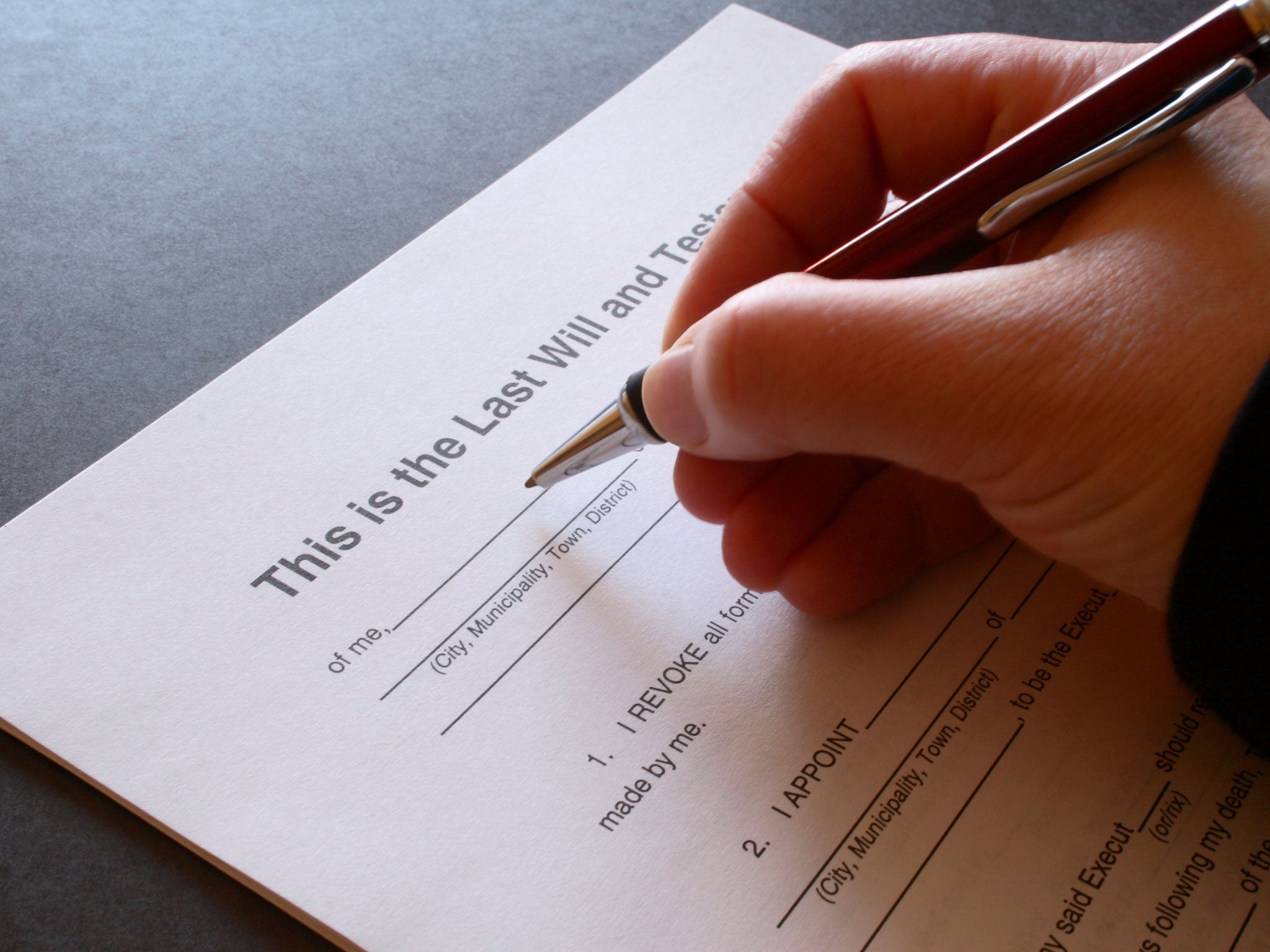How to make a will: It should be the first item on your bucket list
Every year millions of pounds' worth of assets end up not being passed on because people don't make a will

Making a will is one of the tasks that people tend put off most, and it's one of the main reasons why every year millions of pounds' worth of assets left by loved ones end up not being passed on.
None of us likes to talk about death and I can understand why, but failing to make a will can leave those left behind with significant problems and stress at what is already a tough time.
Also, having spent a lifetime working hard to accrue wealth and maybe property, surely you want to have a say in who receives what when you die?
A will can ensure that assets remain within the family and are passed on down the generations. Some people are concerned that new spouses may inherit their assets in the future, but a well-structured will can stop this happening.
About two-thirds of UK adults do not have a will and could be at risk of losing control over their estate if they die, according to a joint study released this week by Co-operative Funeralcare and Co-operative Legal Services.
Previous reports have estimated that about a third of people who have lost a family member in the past 10 years have struggled to locate their financial assets.
That's a big part of why in the UK there is currently more than £600m sitting in unclaimed bank accounts, £44m in unclaimed premium bonds and more than £3bn in stocks and shares.
The problem is, if people don't know what savings, investments, life insurance and treasured possessions you own, they have little chance of tracking them down.
They could turn to a solicitor to help with their search, but it's easy to run up a bill of £2,000-plus for this service, and even more if it's not a straightforward case.
Don't leave it too late
The Co-operative findings also reveal that of those who have made a will, the average age they first wrote their will was 42, whereas one in four left it until after the age of 55.
The most common trigger for writing a will is reaching a milestone age, maybe 40, 50 or even older. Other cited reasons that spur people on to make a will are the birth of a child, the death of relative and buying a property.
Despite the fact that life events such as marriage, divorce and the death of a spouse can significantly alter the effectiveness of a will, many people have never updated their wishes, with a third of people admitting they simply haven't got round to it.
Top tips
The first step is to make an appointment with a local solicitor to make your will (and remember keep it updated every few years).
Second, don't forget to tell your family that you've made a will and where it is kept.
As well as the will itself, write down a list of your assets and keep it with your will. That way the wealth that you've worked so hard for all your life can be located without too much effort and will be passed on to the people you want to receive it.
If you haven't already made a will, now's an ideal time to get something sorted.
During November as part of Will Aid you can get a will prepared by participating solicitors in return for a donation to charity – you can find who is offering the service in your area, by entering your postcode on www.willaid.org.uk.
Subscribe to Independent Premium to bookmark this article
Want to bookmark your favourite articles and stories to read or reference later? Start your Independent Premium subscription today.

Join our commenting forum
Join thought-provoking conversations, follow other Independent readers and see their replies